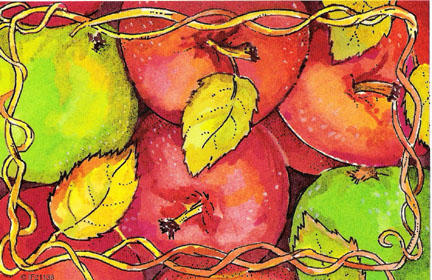
Written by Rabbi Jacob Blumenthal, the Chief Executive of the Rabbinical Assembly.
This past summer I began my new position at the Rabbinical Assembly, and recently my previous congregation held an event to celebrate and appreciate our 20+ years of partnership.
As the event began, congregants joked that the question of the day wasn’t “if Rabbi Jacob would cry,” but “how soon in the ceremony will it happen.” By nature I cry easily, both in sadness and in moments of joy. So they had tissues at the ready. And as they started to thank my wife and children early in the program, my tears began to flow…and the congregation smiled.
While early in my rabbinate I often felt the need to be stoic even in times of great emotion, in more recent years, I found my emotions started to flow more freely. When moved by memories of my parents during Yizkor, or in a sermon reflecting on the pain of others (most recently recalling the separation of parents from children at the border), or a powerful blessing given by b’nai mitzvah parents – my congregants grew used to seeing me shed a tear. I used to be more self-conscious about it, but I grew to accept it and to appreciate the opportunity my community created to let me be vulnerable.
And something interesting started to happen. I noticed others shedding a tear during Kaddish, or as they approached the ark for a private moment during Neilah on Yom Kippur.
More and more members of my community started coming to my office to talk about the challenges they were facing in life, and I started to keep a bigger stock of tissues close at hand.
In our congregations, we can’t afford for our prayer communities to simply be spaces of singing happy tunes or “going through the motions.” Life is often painful and challenging, and so many of us need a community where we are able to open our hearts towards God and towards each other.
The story of Hannah, which we read as the haftarah on the first day of Rosh Hashanah, should remind us of this need for a safe communal prayer space where we can let down our emotional guard. Hannah is barren, and desperately wants a child. She makes the annual pilgrimage to the ancient worship shrine at Shiloh with her husband. “In her wretchedness, she prayed to Adonai, weeping all the while” (I Samuel 1:10, JPS translation from the Mahzor Lev Shalem). The story continues, “Now Hannah was praying in her heart; only her lips moved but her voice could not be heard” (1:13).
The head priest of the shrine, Eli, is watching her, but he does not understand what is happening. As readers with knowledge of what Hannah is doing, we are shocked as Eli demands, “How long will you make a drunken spectacle of yourself? Sober up!” Fortunately, Hannah asserts herself and her needs, and Eli comes to realize his mistake and blesses her. Ultimately (spoiler alert!) her prayers are answered with the birth of her son, Samuel, who became one of the great prophets.
We readers are aghast at Eli’s lack of awareness and insensitivity. The Talmud says that Hannah’s mode of prayer, in which she bares her soul and cries out with tears and with silent devotion, is the example for all of us, and our “quiet Amidah” is modeled on her soundless, tearful prayer (Berakhot 31b).
This story challenges us to consider whether we create prayer spaces and community that nurture deep emotional expression and connection in our synagogues. How can we form a prayer community that allows for such vulnerability? How can we interpret and internalize the words of the Mahzor in ways that will give voice to our pain from the past year and our deepest hopes for the year to come?
As synagogue leaders, we spend a lot of time in the days leading up to the holidays thinking about the logistics – tickets, appeals, seating, and so much more. But I hope we’ll also spend time thinking about the atmosphere, the feeling of connection and holiness, and the relationships we need to create to allow true prayer to take place. And as we create sacred time, community, and space in coming weeks, I hope you’ll be comfortable enough in your prayer experience to shed a few vulnerable tears of your own, whether of sadness or joy.
L’shanah Tovah Um’tukah – Every wish for a happy and sweet new year!








